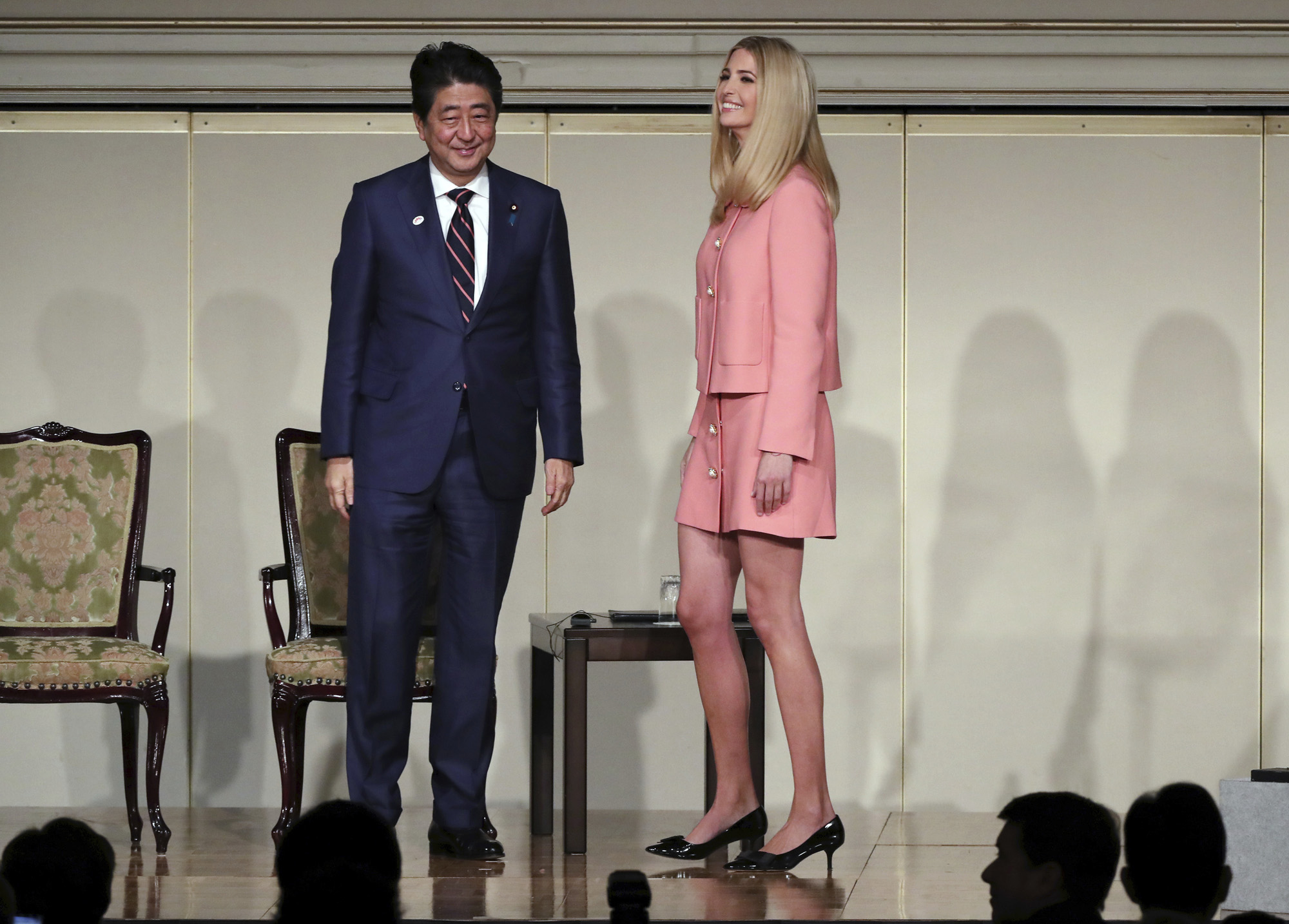It was supposed to be a shining moment for Prime Minister Shinzo Abe on the podium at the World Assembly for Women (WAW!), a conference focusing on "A society where women shine." Next to Abe on stage stood Ivanka Trump in a pink dress, glancing over her host with a polite smile. "Since I took the office five years ago, over 1.5 million women have started working. I am pleased to report the Japanese women's labor market participation rate has now exceeded that of the United States," boasted the prime minister.
Unfortunately for Abe, his statement rang a bit hollow. Hours before his speech, the World Economic Forum announced Japan's gender gap ranking has slipped from last year's 111th to 114th, out of 144 countries. While the Abe administration has been busy sending more women to the labor market over the last five years, Japan's report card on the gender index has plunged more than dozen spots from the 101th in 2012. To rub salt in the wound, the main reason for this year's deterioration was a poor showing in political appointments, which one could argue is Abe's stomping ground. Out of 20 ministers handpicked by Abe for his latest Cabinet, after his Liberal Democratic Party's landslide win in the October general election, there were only two women. This is down more than by half, compared to 2014, when the Cabinet had five female ministers — and therefore closer to the government's target of women taking up 30 percent of management positions.
To be fair, Japan's gender equality has been making progress in the economic empowerment category, even though the speed of change has been painfully slow. The absence of female leaders in politics, on the other hand, seems to be left largely untouched. Currently, Japan is placed at a staggering 123rd in political empowerment, one notch above Saudi Arabia and below countries such as Botswana, Cambodia and even South Korea. Yet, not much is being discussed to rectify this highly embarrassing situation.



